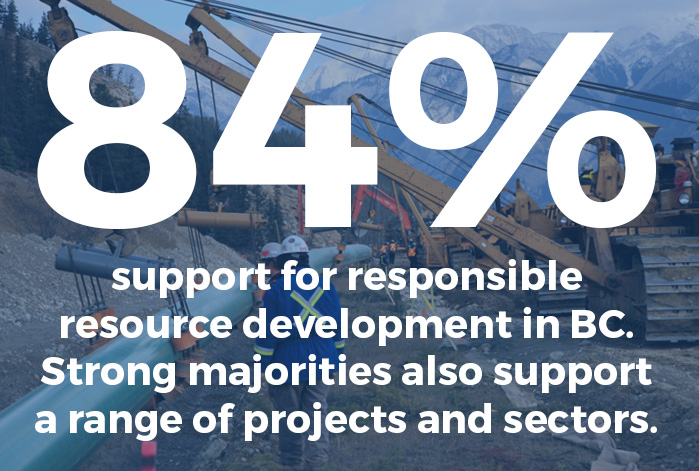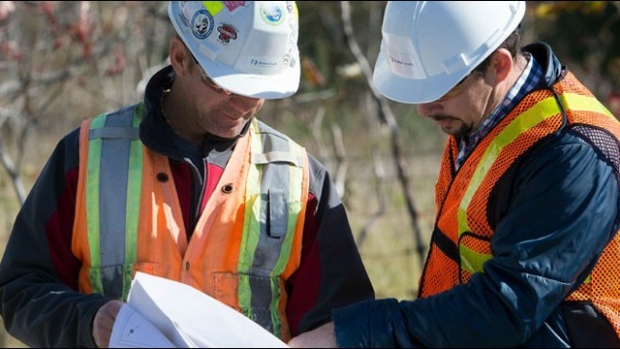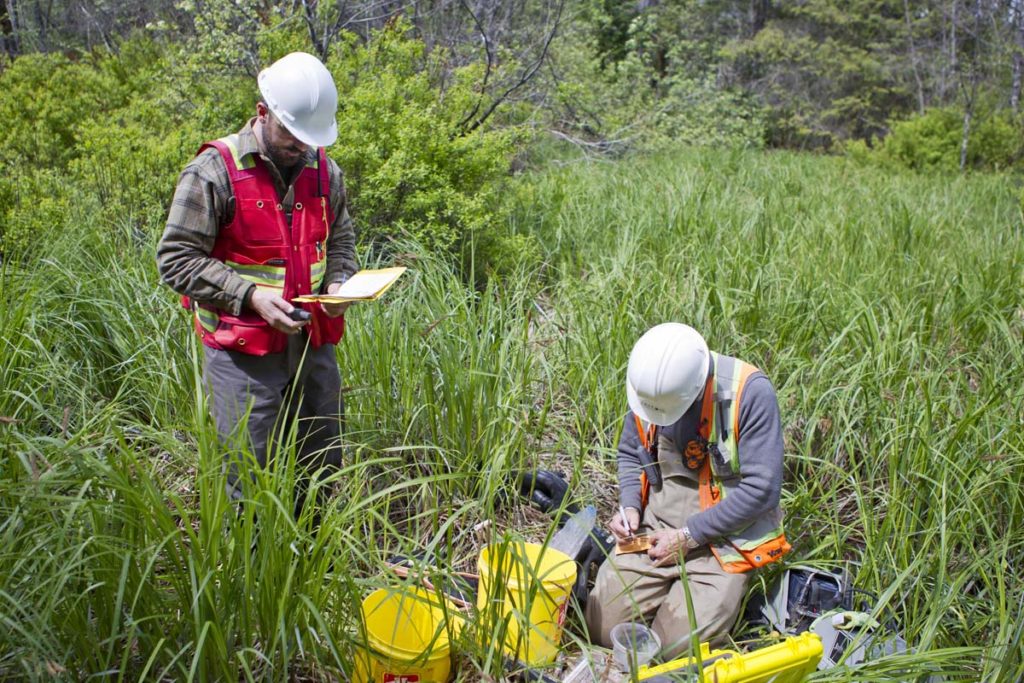Is there public support for major projects in BC like the Trans Mountain pipeline expansion?
 Through a recent poll, we determined that there is exceptionally strong support for responsible resource development. Support for these projects crosses political boundaries, and that opponents, while vocal, represent a very small minority in British Columbia.
Through a recent poll, we determined that there is exceptionally strong support for responsible resource development. Support for these projects crosses political boundaries, and that opponents, while vocal, represent a very small minority in British Columbia.
The poll found 84 per cent of residents support responsible resource development. British Columbians understand that a resource-based economy creates jobs not only in construction but in almost every other sector of the economy. The high paying jobs created by the pipeline lead to more spending at hotels and restaurants, at auto dealers, on after-school activities and recreation.
What role does the construction industry play in creating a sustainable future for BC?
 The construction industry is the main mechanism for converting public concerns about sustainable development into the buildings and infrastructure projects that satisfy our objective of a clean, green economy. About 70 per cent of jobs that drive energy efficiency land in the construction sector, for example.
The construction industry is the main mechanism for converting public concerns about sustainable development into the buildings and infrastructure projects that satisfy our objective of a clean, green economy. About 70 per cent of jobs that drive energy efficiency land in the construction sector, for example.
Our members and their employees embrace the idea of minimizing our environmental footprint. Who is more likely to care about British Columbia’s outdoor lifestyle than a blue collar worker who enjoys camping, fishing, hunting, snowmobiling, hiking and canoeing?
What measures will the construction industry take to protect the environment during construction of the Trans Mountain Expansion Project?
Our contractors recognize the need to have all federal, provincial and municipal permits and authorizations before proceeding and to meet all environmental commitments and permit requirements once they are under way.
Most of the environmental and land use issues on the Project right-of-way are routinely encountered during pipeline construction, and they’re considerations that ICBA members are typically familiar with. Mitigation measures, which would take place where local environmental impact cannot be avoided, are also encountered as a matter of routine.
As Trans Mountain has stated, there must be management oversight, on-site environmental inspections, environmental training for all onsite personnel as well as the opportunity to consult with environmental decision makers such as wildlife biologists and water quality monitors once work is under way.
For the long term, there are emergency preparedness measures, state of the art pipeline spill prevention and protection technology, pipeline integrity monitoring, seismic risk mitigation and incident command systems in place for land spill response.
These are all very expensive conditions but it’s the kind of approach that shows we in Canada can build and maintain this infrastructure correctly.
 How will BC families benefit from the Trans Mountain expansion project?
How will BC families benefit from the Trans Mountain expansion project?
Trans Mountain Expansion Project will keep thousands of workers employed during a two-year peak construction phase. That’s long in terms of the standards of the construction labour force.
For construction workers, the project presents an opportunity to further their careers —particularly for people who may be relatively new to the workforce. For young workers in particular, it’s a stable platform for apprenticeships, employment and skill development. Remember training in construction is on-the-job training so without projects like the Trans Mountain Expansion Project we cannot develop our province’s workforce.

Governments provincially and federally need the money from the three Canadian pipeline projects. I have been in business all my life and my business philosophy is have more money coming in than going out. It is simple and our federal government and each provincial government would do better to adopt my policy. Getting the three pipelines going would help our government’s bottom line big time.